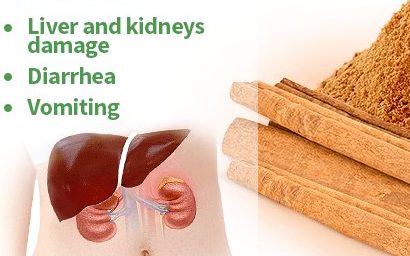
Cinnamon is a popular spice known for its aromatic flavor and numerous potential health benefits. However, there have been concerns about its impact on liver health. In this article, we will delve into the scientific literature to explore the effects of cinnamon on the liver, examining its potential benefits and any possible adverse effects. By the end, we hope to provide a comprehensive understanding of the relationship between cinnamon consumption and liver health.
Understanding Cinnamon:
Cinnamon is derived from the bark of trees belonging to the Cinnamomum genus. It has been used for centuries in traditional medicine to treat various ailments, including digestive issues. Cinnamon is rich in antioxidants, such as polyphenols, known for their potential health-promoting properties.
Exploring the Potential Benefits:
- Anti-inflammatory properties: Cinnamon contains anti-inflammatory compounds, which may help reduce liver inflammation. Chronic inflammation is associated with developing liver diseases such as non-alcoholic fatty liver disease (NAFLD) and liver fibrosis.

2. Antioxidant activity: The antioxidants present in cinnamon can help combat oxidative stress, which occurs when there is an imbalance between free radicals and the body’s antioxidant defenses. Oxidative stress is implicated in liver damage, and cinnamon’s antioxidant properties may play a protective role.
3. Blood sugar regulation: Cinnamon has been studied for its potential ability to regulate blood sugar levels. Maintaining stable blood sugar levels is crucial for liver health, as prolonged high blood sugar can lead to conditions like NAFLD. Some studies suggest that cinnamon may enhance insulin sensitivity and control blood sugar.
3. Lipid-lowering effects: Several studies have demonstrated that cinnamon may have lipid-lowering effects, potentially reducing the accumulation of fats in the liver. This could be beneficial in preventing or managing conditions such as NAFLD and dyslipidemia.

Examining the Research: While cinnamon has shown promising results in various in vitro and animal studies, human studies exploring its effects on liver health are relatively limited. It is essential to approach the available evidence cautiously and recognize the need for further research. Below are some key findings from existing studies:

- Human studies: A small number of human studies have investigated the effects of cinnamon on liver health. One study involving patients with NAFLD found that cinnamon supplementation improved liver enzyme levels and markers of inflammation. However, more extensive and robust studies are needed to confirm these findings.
- Animal studies: Animal studies have provided insights into the potential benefits of cinnamon for liver health. For example, in a study on rats with induced liver fibrosis, the cinnamon extract exhibited hepatoprotective effects by reducing fibrosis and inflammation markers. These results are promising but require further validation in human studies.
- Mechanisms of action: Research suggests that cinnamon may exert its beneficial effects on the liver through various means, including reducing inflammation, improving insulin sensitivity, and modulating lipid metabolism. However, more studies are needed to fully understand these mechanisms and their impact on human liver health.
Considerations and Precautions:
While cinnamon appears to have potential benefits for liver health, it is essential to consider some factors and precautions:
- Dosage and quality: The dosage and quality of cinnamon used can significantly impact its effects. Different cinnamon varieties and preparations may have varying levels of active compounds. Choosing high-quality cinnamon and consulting with a healthcare professional regarding the appropriate dosage is crucial.
- Individual variations: Individual responses to cinnamon may vary. Some people may experience allergic reactions or digestive issues when consuming cinnamon. If you have pre-existing liver conditions or are taking medications, it is advisable to consult with a healthcare professional before incorporating cinnamon into your diet.

Conclusion:
Research suggests that cinnamon may have beneficial effects on liver health. Its anti-inflammatory, antioxidant, blood sugar-regulating, and lipid-lowering properties show potential benefits for conditions like NAFLD. However, it’s important to note that research in this area is still limited, and further studies are necessary to confirm these findings and determine optimal dosages and long-term effects.
As with any dietary component, moderation and individual considerations are essential. If you have concerns about cinnamon’s impact on your liver health, it is best to consult a healthcare professional who can provide personalized advice based on your circumstances.
